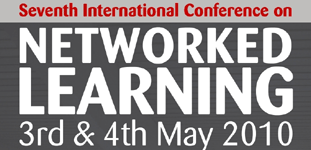

Design for Learning in a Social Network
Karin Levinsen
The Danish Business School of Education, Aarus University, Copenhagen NV, Denmark
Janni Nielsen
Copenhaged Business School, Frederiksberg, 2000F, Denmark
Abstract
The transition from the industrial to the networked society produces contradictions that challenges the educational system and force it to adapt to new conditions. In a Danish virtual Master in Information and Communication Technologies and Learning (MIL) these contradictions appear as a field of tension between time resources and the demand for educational quality. Our approach is based on constructivist and social constructivist traditions but we are required to measure students according to a list of learning goals. The size of curriculum is growing while the time available for learning is continuously decreasing. We teach for deep learning but are confronted by students' cost-benefit strategies when they navigate through the study programme under time pressure. To meet these challenges a Design for Learning Model has been developed. The aim is to provide a scaffold that ensures students´ acquisition of the subject matter within a time limit and at a learning quality that support their deep learning process during a subsequent period of on-line study work. In the process of moving from theory to application the model passes through three stages: 1) Conceptual modelling; 2) Orchestration, and 3) The Operationalization that direct the students' performance in practice when the design model is applied. Moving from conceptual modelling and orchestration to operationalization is a move from the generic theoretical modelling into a specific description of an application of the model in a specific context. The context for the experiment is MIL´s course on Interaction Design. The orchestration is operationalized as a 4-hour script that builds on classic role-play designed as an open ended explorative task. The script of the teams' tasks is designed to facilitate the teams' ongoing negotiation and structuring of their collaboration and students are required to document their choices, deselections, decisions and arguments and reflect on their learning process during the role-play. In the final paragraph we discuss our experimental work with the Design for Learning Model. We argue that our model gives birth to scaffolding which enables students to develop Networked Society competencies and maintain progression in the learning process also during the online periods. Additionally we suggest that our model contributes to the innovation of a networked society's design for learning.
| About NLC | Welcome Messages| Acknowledgwments | Conference Proceedings| Keynote Speakers| Index of Presenting Authors| Contact |